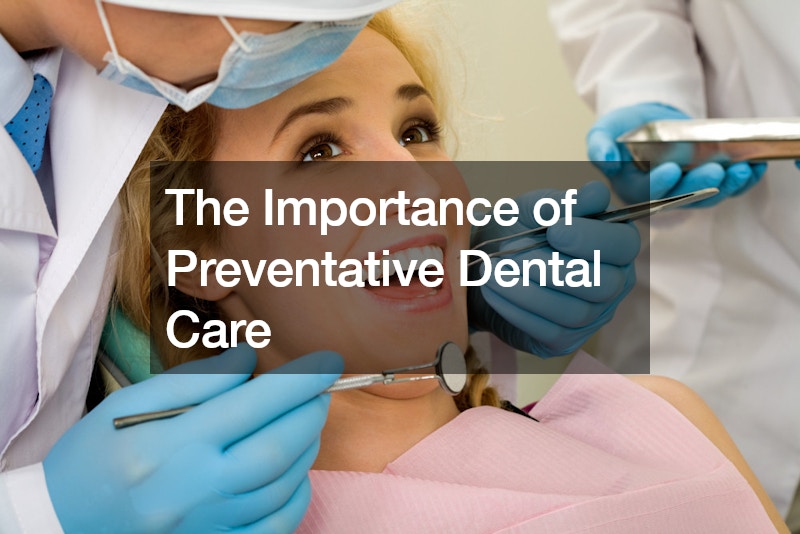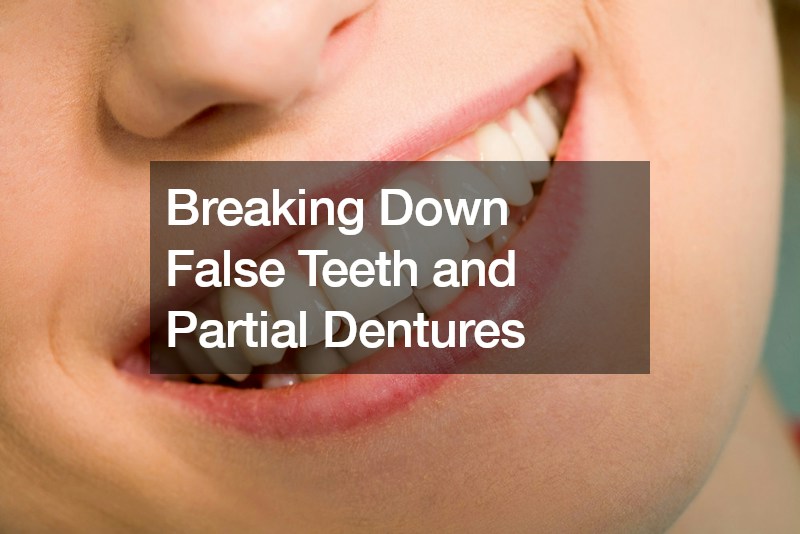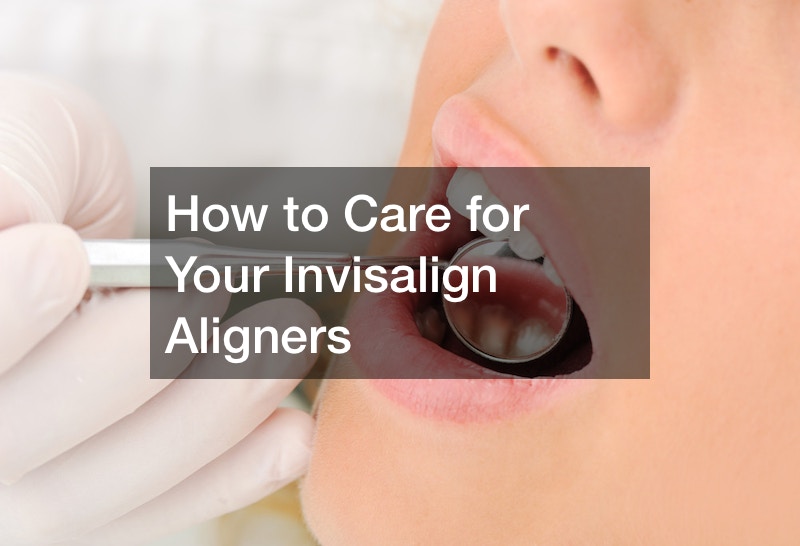Preventative dental care is not just about maintaining a dazzling smile; it is a cornerstone of overall health and well-being. By prioritizing regular dental visits and proactive treatments, individuals can prevent a myriad of dental issues that could otherwise lead to discomfort, pain, and significant expenses. This article delves into the importance and benefits of preventative dental care, offering insights into why it should be a fundamental part of everyone’s healthcare regimen.
1. What is Preventative Dental Care?
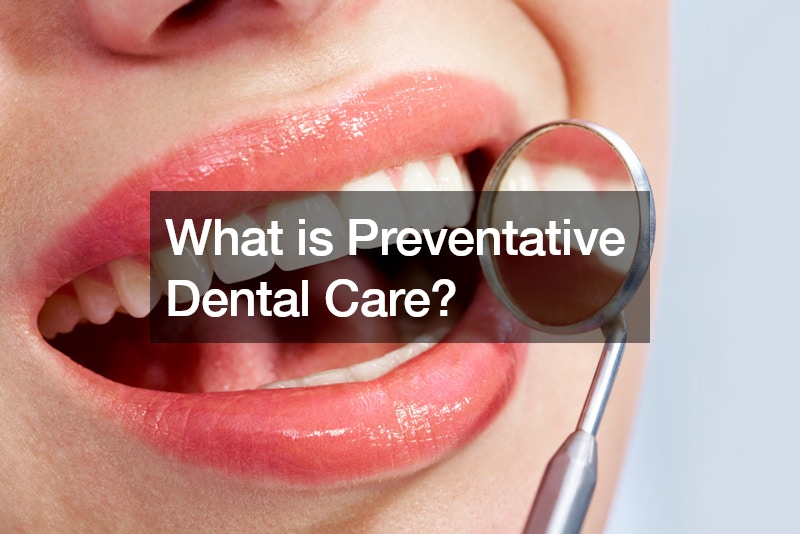
Preventative dental care encompasses a spectrum of services and practices aimed at maintaining oral health and preventing dental problems before they escalate. It involves routine visits to the dental office for check-ups, cleanings, and early detection of issues like cavities, gum disease, and oral cancer. These proactive measures not only save individuals from potential pain and discomfort but also contribute to overall health by reducing the risk of systemic diseases linked to poor oral hygiene. By addressing oral health issues in their early stages, preventative dental treatment helps individuals avoid more complex and costly treatments later on.
Regular dental check-ups play a critical role in preventative care by allowing dentists to assess oral health comprehensively. During these visits, dentists conduct thorough examinations, looking for signs of decay, gum inflammation, and other oral health concerns. Professional cleanings and polishing remove plaque and tartar buildup, which are major contributors to dental problems like cavities and gum disease. Additionally, X-rays and other diagnostics aid in identifying hidden issues that may not be visible during a visual examination alone, ensuring a thorough assessment of oral health status.
2. How Often Should One Visit the Dentist?
The frequency of dental visits varies based on individual factors such as age, overall health, and dental history. While biannual visits are typically recommended for most adults and children, some individuals may require more frequent visits based on their specific oral health needs. Factors influencing visit frequency include existing dental conditions, the presence of chronic diseases that affect oral health, and lifestyle habits like smoking or consuming sugary foods. Consistency in dental visits is key to maintaining optimal oral health, as it allows for early detection and timely intervention in case of emerging dental issues.
Regular dental visits not only focus on detecting and treating existing dental problems but also emphasize preventive measures to maintain oral hygiene. Dentists provide guidance on proper brushing and flossing techniques tailored to individual needs, ensuring effective plaque removal and gum care at home. Moreover, dental professionals may recommend specific dentists oral care products such as fluoride toothpaste or mouthwash to further enhance oral health. By adhering to recommended visit schedules and practicing good oral hygiene habits, individuals can significantly reduce the risk of developing serious dental issues that may require invasive treatments.
3. What Happens During a Routine Dental Check-Up?

A routine dental check-up is a comprehensive assessment of oral health that encompasses several essential procedures aimed at preventing and addressing dental issues. It typically begins with a thorough examination conducted by the dentist or dental hygienist. This examination involves inspecting the teeth, gums, and other oral tissues for signs of decay, gum disease, and oral cancer. Early detection of these conditions allows for prompt treatment, which can prevent them from progressing into more severe problems.
In addition to the visual examination, routine dental check-ups include professional cleaning and polishing of the teeth. Even with diligent brushing and flossing at home, plaque and tartar can accumulate in hard-to-reach areas of the mouth. Professional cleaning removes these deposits, reducing the risk of cavities and gum disease. For a more comprehensive assessment, dentists may also utilize X-rays and other diagnostic tools. X-rays can reveal issues such as cavities between teeth, impacted wisdom teeth, or bone loss, which may not be visible during a visual inspection alone. These diagnostic aids enable a dentist office to formulate personalized treatment plans based on each patient’s unique oral health needs.
Routine dental check-ups not only address existing dental concerns but also serve as educational opportunities for patients. Dentists and dental hygienists provide guidance on proper oral hygiene practices, including brushing and flossing techniques tailored to individual needs. They may recommend specific oral care products and offer advice on maintaining a balanced diet that promotes oral health. By participating actively in their dental care during routine visits, patients empower themselves to take proactive steps toward maintaining healthy teeth and gums throughout their lives.
4. How Can Routine Dental Services Prevent Major Issues?
The primary goal of routine dental services is to detect and address potential dental problems before they escalate into more serious conditions requiring invasive treatments. Early identification of issues such as cavities, gum disease, or enamel erosion allows for timely intervention, often through minimally invasive procedures like dental fillings or fluoride treatments. These preventive measures not only preserve the natural structure of the teeth but also mitigate the need for more extensive and costly treatments such as root canals or dental implants. You may need to consider clear braces.
Furthermore, routine dental services contribute significantly to the maintenance of optimal oral hygiene. Regular professional cleanings remove plaque and tartar buildup, which if left unchecked, can lead to tooth decay and gum disease. Dentists also educate patients on effective oral hygiene practices and provide personalized recommendations for oral care products. By incorporating these recommendations into their daily routine, individuals can enhance their oral health and reduce the risk of developing dental problems in the future.
In addition to preventing dental issues, routine dental services play a crucial role in promoting overall well-being. Poor oral health has been linked to various systemic conditions, including cardiovascular disease, diabetes, and respiratory infections. By maintaining good oral hygiene and addressing dental issues promptly, individuals can lower their risk of developing these serious health conditions. Investing in preventative dental care through routine dental services not only supports oral health but also contributes to a healthier overall lifestyle.
5. What Role Does Oral Hygiene Play in Preventative Care?
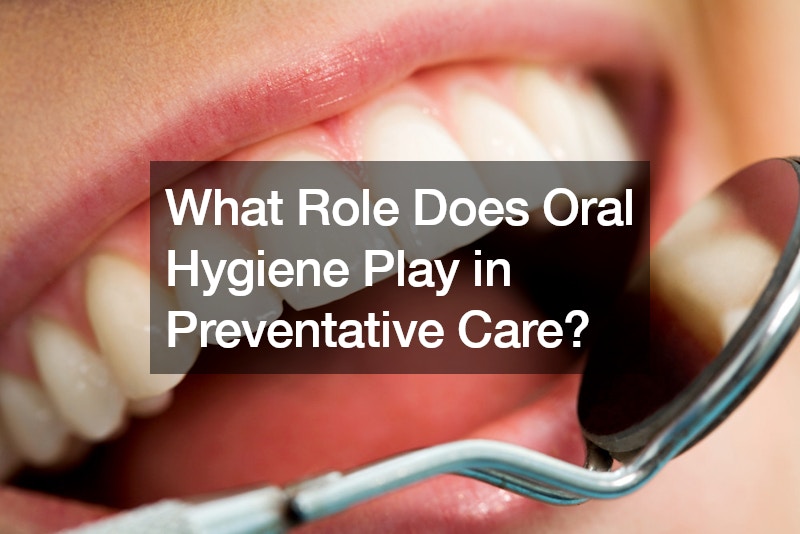
Oral hygiene forms the foundation of preventative dental care, encompassing daily habits and practices that maintain optimal oral health between dental visits. Effective oral hygiene routines, including brushing twice daily with fluoride toothpaste and flossing at least once a day, help remove plaque—a sticky film of bacteria—from the teeth and gums. By consistently removing plaque, individuals can prevent the formation of cavities and reduce the risk of gum disease, both of which can lead to more serious oral health issues if left untreated.
In addition to brushing and flossing, the choice of oral care products can significantly impact oral hygiene. Dentists often recommend toothbrushes with soft bristles and a shape that comfortably fits the mouth, facilitating thorough cleaning without causing damage to the gums. Fluoride toothpaste strengthens tooth enamel and helps protect against cavities by remineralizing weakened areas of the teeth. Mouthwashes containing fluoride or antibacterial agents can further complement oral hygiene efforts by reducing plaque and freshening breath.
Beyond daily habits, dietary choices and lifestyle factors play a crucial role in preventative dental care. Limiting sugary snacks and beverages can help prevent the buildup of plaque, which thrives on sugar and produces acids that erode tooth enamel. Similarly, avoiding tobacco products and maintaining a balanced diet rich in fruits, vegetables, and calcium-rich foods supports overall oral health. By integrating these habits into their daily routines, individuals can enhance the effectiveness of routine dental services and maintain a healthy smile for years to come.
6. Are Routine Dental Services Covered by Insurance?
Understanding the coverage provided by cosmetic dental clinic insurance plans is essential for individuals seeking to manage the costs associated with preventative dental care. Most dental insurance policies include coverage for routine services such as dental check-ups, cleanings, and X-rays as part of preventive care. Preventive services are typically covered at a higher percentage or even fully covered by insurance plans, reflecting their importance in maintaining oral health and preventing more costly dental procedures in the future.
While routine dental services are generally covered by insurance, it is important for individuals to be aware of any out-of-pocket costs they may incur. Deductibles, co-payments, and annual maximums can vary depending on the insurance plan and provider. Understanding these financial aspects can help individuals plan and budget for their dental care needs accordingly. Additionally, some insurance plans may have restrictions or waiting periods for certain treatments or services, so it is advisable to review the policy details and discuss any questions with the insurance provider or dental office staff.
By utilizing insurance coverage effectively and scheduling regular dental visits, individuals can optimize their oral health outcomes while managing costs. Preventative dental care not only safeguards against dental issues but also supports overall well-being, making it a valuable investment in long-term health. With proactive management of oral health through routine dental services and adherence to recommended oral hygiene practices, individuals can enjoy healthy teeth and gums throughout their lives.
7. How to Choose the Right Dentist for Preventative Care?
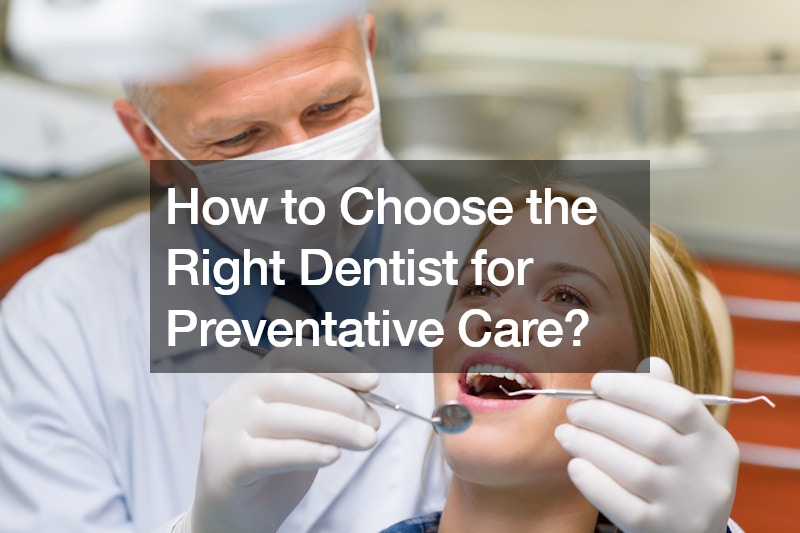
Selecting a dentist who aligns with personal preferences and needs is crucial for establishing a successful preventative dental care regimen. Considerations such as the dentist’s qualifications, experience, and reputation within the community play significant roles in this decision-making process. A reputable dentist, often recommended by local dentists by word of mouth or professional referrals, demonstrates a commitment to quality care and patient satisfaction.
Furthermore, the location and office hours of the dental practice should also be taken into account. Choosing a dentist with a convenient location and flexible appointment scheduling ensures that routine visits can be easily integrated into one’s lifestyle. This accessibility encourages regular dental check-ups, which are essential for maintaining optimal oral health and catching potential issues early. Additionally, evaluating the dental practice’s approach to preventative care and patient education can provide insights into how proactive the dentist is in promoting oral health and preventing dental problems.
When meeting with potential dentists, asking relevant questions about their treatment philosophies, preventive measures, and available services can clarify expectations and ensure a good fit. Consider discussing the dentist’s approach to preventive treatments, such as fluoride applications or sealants for children, as these interventions can help mitigate the risk of future dental issues. By selecting a dentist who values preventative care and establishes a positive rapport, individuals can confidently embark on a journey toward lifelong oral health and well-being.
8. What Are the Risks of Skipping Routine Dental Visits?
Neglecting regular dental visits can lead to a range of consequences that impact both oral health and overall well-being. In the short term, missed check-ups can result in undetected dental issues progressing unchecked. For instance, untreated cavities can deepen and extend into the tooth’s pulp, leading to severe pain and potentially necessitating root canal therapy or even dental implant surgery if the tooth cannot be saved. Similarly, untreated gum disease can advance from mild gingivitis to periodontitis, causing gum recession, bone loss, and eventually tooth loss.
Long-term risks of skipping routine dental visits extend beyond dental health. Poor oral hygiene and untreated dental problems have been linked to systemic health issues such as cardiovascular disease, diabetes complications, and respiratory infections. The presence of chronic inflammation from untreated gum disease, for example, may exacerbate conditions like diabetes by affecting blood sugar control. Moreover, oral infections can potentially spread to other parts of the body, compromising overall health and increasing the risk of systemic infections.
Financially, avoiding routine dental visits can also lead to higher healthcare costs in the long run. Preventative dental care is designed to catch and treat dental issues early when they are less complex and less costly to address. By contrast, delaying treatment until symptoms become severe often requires more extensive interventions, which can be significantly more expensive. Moreover, dental insurance plans typically cover preventive services at a higher percentage or completely, minimizing out-of-pocket expenses for individuals who prioritize regular dental visits.
In summary, the risks of skipping routine dental visits are multifaceted, impacting oral health, overall health, and financial well-being. By maintaining consistent dental appointments and addressing dental concerns promptly, individuals can mitigate these risks and enjoy better oral health outcomes throughout their lives.
9. What Are Some Advanced Preventative Treatments?
Advanced preventative treatments complement routine dental services by providing additional layers of protection against dental issues. Sealants, for instance, are thin plastic coatings applied to the chewing surfaces of molars and premolars to prevent cavities. These protective barriers seal off the pits and fissures where bacteria and food particles often accumulate, making them particularly effective for children and teenagers who may struggle with thorough brushing.
Fluoride treatments represent another advanced preventative measure aimed at strengthening tooth enamel and reducing the risk of tooth decay. Fluoride, a naturally occurring mineral, remineralizes weakened areas of enamel and inhibits the growth of cavity-causing bacteria. Dentists may recommend fluoride treatments during routine visits, especially for individuals at higher risk of developing cavities due to factors such as inadequate oral hygiene practices or frequent consumption of sugary foods and beverages.
Laser dentistry is another innovative approach to preventative care that offers minimally invasive treatment options for various dental procedures. Lasers can be used to remove decayed tooth structure, perform gum disease treatments, and even assist in teeth whitening procedures. Laser technology minimizes discomfort, reduces recovery time, and preserves more healthy tooth structure compared to traditional dental techniques, making it an appealing choice for patients seeking efficient and effective dental care.
By incorporating these advanced preventative treatments into their dental care routines, individuals can enhance the effectiveness of routine dental services and further safeguard their oral health. These proactive measures not only prevent dental issues from developing but also contribute to maintaining strong, healthy teeth and gums over the long term.
10. How Can Parents Encourage Preventative Dental Care for Their Kids?
Encouraging preventative dental care in children is essential for establishing lifelong habits that promote oral health and overall well-being. Educational strategies play a crucial role in this process, starting with teaching children proper brushing and flossing techniques from a young age. Parents should supervise oral hygiene routines until children develop the coordination and understanding necessary to perform these tasks independently.
Creating positive experiences during dental visits is another effective strategy for encouraging preventative care in children. Pediatric dentists often specialize in creating a welcoming environment that alleviates anxiety and fear associated with dental appointments. By choosing a dentist who specializes in treating children and tailoring visits to be engaging and educational, parents can help their children develop positive associations with dental care.
Furthermore, parents serve as powerful role models for their children’s oral health behaviors. Demonstrating good oral hygiene practices, including brushing and flossing regularly and attending dental check-ups, reinforces the importance of preventative care. Additionally, maintaining a healthy diet low in sugary snacks and beverages supports optimal oral health and reduces the risk of cavities and gum disease.
By taking a proactive approach to their children’s dental health, parents can instill habits that contribute to lifelong oral health. Through education, positive experiences, and leading by example, parents empower their children to prioritize preventative dental care and enjoy the benefits of healthy smiles well into adulthood.
Conclusion
Investing in preventative dental care through routine dental services is an investment in long-term health and well-being. By addressing common concerns and elucidating the critical role of regular dental visits, individuals can make informed decisions that safeguard their oral health. Ultimately, proactive dental care not only ensures healthy smiles but also contributes to overall physical health, underscoring its indispensable place in comprehensive healthcare practices. With consistent effort and commitment to preventative dental care, individuals can enjoy the benefits of strong, resilient teeth and gums for a lifetime.

